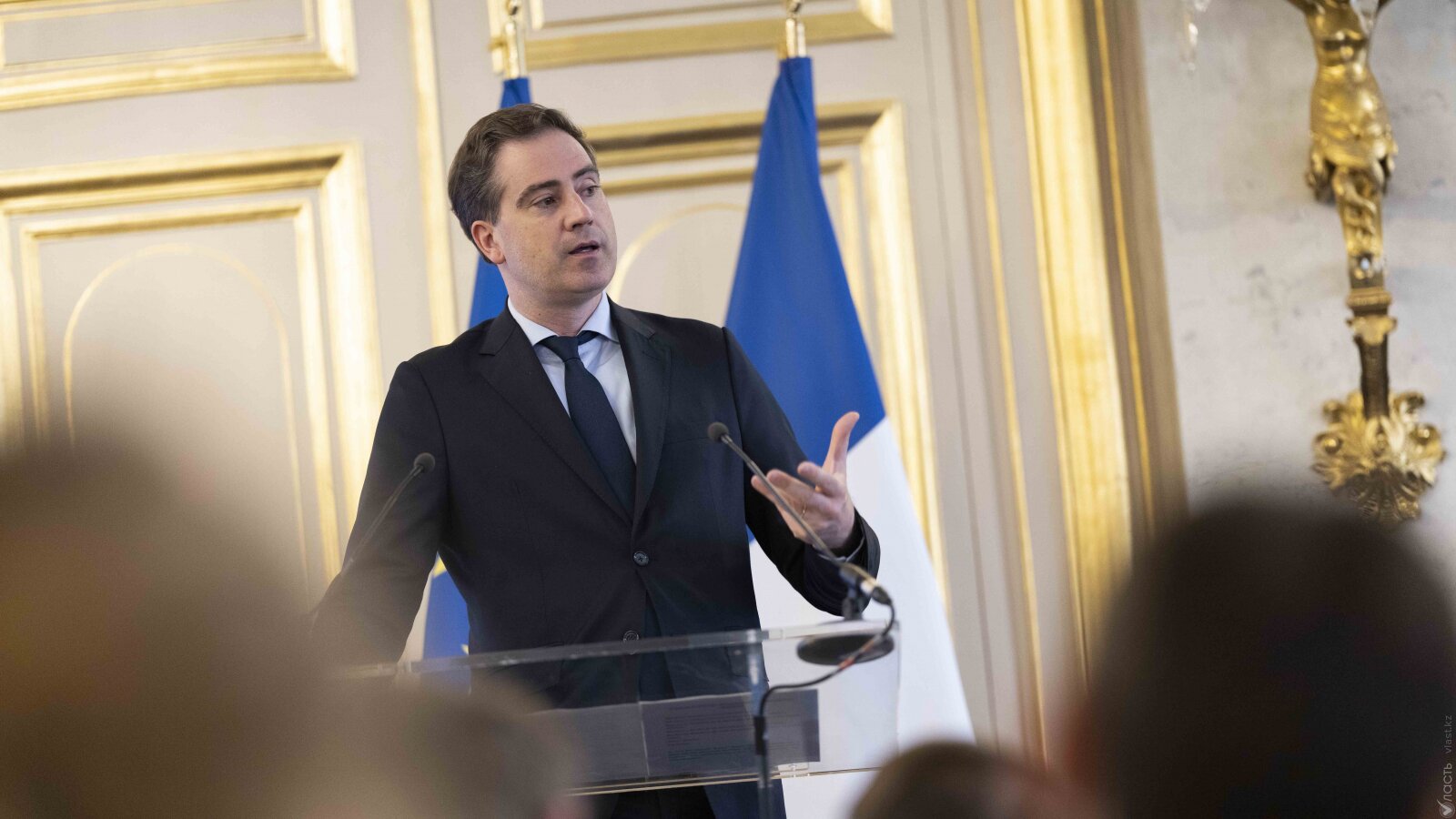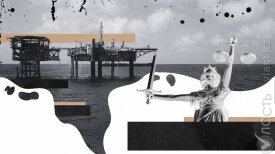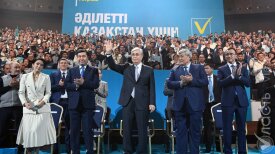Ahead of his official visit to Kazakhstan on May 2-3, Minister Olivier Becht answered a few questions by Vlast.
Minister Becht, during your visit to Kazakhstan, who will you meet among local government officials? Are there any specific topics that you plan to discuss?
At a time of geopolitical tensions, France seeks to further strengthen its friendly ties, cooperation, and trust with Kazakhstan. Our countries, which have been strategic partners over the past 15 years, are equally committed to the fundamental principles of the Charter of the United Nations and to an international order governed by the rule of law. My visit is intended to reiterate France's commitment to respecting the sovereignty and territorial integrity of Kazakhstan.
President Kassym-Jomart Tokayev visited Paris shortly after his re-election. Now, I have come to continue the high-level political dialogue between our two countries and to contribute to the growth of our cooperation, primarily in the economic sphere. France is one of the leading foreign investors in Kazakhstan. Many leading French companies successfully operate here. For example, TotalEnergies, Orano, or Air Liquide in the energy sector, Saint-Gobain in industry, Lactalis and Danone in the agri-food sector, Alstom in the railway sector, or Idemia in the security sector, to name a few. The interest of French companies in Kazakhstan is growing, as evidenced by the large business delegation accompanying me and the most recent visit of about thirty companies led by MEDEF International, the main professional association of French entrepreneurs.
The program of my visit is packed: I will meet with President Tokayev, hold negotiations with the Ministers of Foreign Affairs, Economy, Energy and Agriculture, as well as with the Chairman of the National Welfare Fund Samruk-Kazyna. Together with the Minister of Industry and Infrastructure Development, we will co-chair the Intergovernmental Economic Commission. In the course of our work, we will consider all areas of economic cooperation, from industry to agriculture, transport, energy, and healthcare.
In 2022, the trade turnover between France and Kazakhstan reached $4 billion. Which areas of cooperation do you plan to strengthen?
In the sectors of energy, transport, and industry, French and Kazakhstani companies have established strong partnerships that are being improved and developed. In addition to these legacy sectors, in 2021, France and Kazakhstan signed an economic roadmap to 2030, which identifies promising new sectors such as agriculture, healthcare, sustainable management of mineral resources, and energy transition. In the upcoming future, we will forge new partnerships in these sectors. This is why companies and government agencies are accompanying me here today. In agriculture, there is great potential for progress. France is the leading agricultural power in the European Union and Kazakhstan is number one in Central Asia. We must expand our cooperation, for example, in the fields of veterinary medicine, genetics, agricultural education, and leading field crops. There is a vast space for interaction.
On the healthcare front, I am pleased with the growth of our cooperation over the past two years, to the point that a French technical expert is now an adviser to the Ministry of Health. We work together in the field of cancer research, in particular with Institut Curie, the leading European institution in the field of cancer research. We have helped Kazakhstan develop access to healthcare in rural areas, introduce innovations in the medical sector, build hospitals to the highest European standards, and improve the training of doctors. The French Ministry of Foreign Affairs has allocated more than one million euros over four years to support these initiatives.
As you can see, France's political desire to develop cooperation with Kazakhstan is strong. We are devoting significant resources to this goal. Progress in these areas is sometimes hampered by a shortage of French-speaking Kazakhstani specialists. In the past years, French language instruction has declined sharply, with less than 1% of secondary school students having the opportunity to learn French. Our companies are also having difficulty recruiting French-speaking candidates. There is a real need and our embassy promotes the creation of bilingual francophone sections in secondary schools - in Astana, Almaty, Karaganda and Aktau in an effort to support the study of the French language. At the same time, the Agency for French Education Abroad is overseeing two projects for the creation of international French schools - one in Astana, the other in Almaty. These schools will offer a quadrilingual curriculum (French-English-Kazakh-Russian). The development of university exchanges is also one of our priorities. We have increased the number of scholarships for Kazakhstani students wishing to study in France.
Do you plan to foster cooperation between the two countries with respect to measures to combat climate change? Besides TotalEren’s renewable energy projects, what other concrete steps concerning these topics do you plan to bring forward during your meetings in Kazakhstan?
The one-gigawatt wind farm project by TotalEren represents a unique example in the region in terms of its scale and technology solutions. This project testifies to the common desire of France and Kazakhstan to work for the benefit of strengthening the energy sovereignty of Kazakhstan and the decarbonization of its economy.
During my high-level meetings, I will also note the readiness of companies in the French nuclear industry, starting with EDF, to support Kazakhstan in the development of civil nuclear energy.
There is one noteworthy phenomenon that has become worrisome for both our countries: the drying up of water resources. An increasing number of countries are facing this problem. We want to share with Kazakhstan our best practices in groundwater exploration and management.
Finally, I intend to bring to the attention of my interlocutors that the French Development Agency is ready to finance projects in Kazakhstan in the field of ecological transition. I hope that the authorities of Kazakhstan will give their green light to this new instrument of bilateral cooperation.
One year since the start of Russia’s war in Ukraine, the socioeconomic effects of the conflict are still being felt in Kazakhstan. What do you think will happen next with the conflict in Ukraine? How will it continue to affect trade between France and Kazakhstan?
By waging war against a sovereign country, Russia violates the principles enshrined in the UN Charter. Our support for the sovereignty, independence, and territorial integrity of Ukraine is not only geared to helping a free people, but also to protecting international law and the security of the European continent. That is why, from the first day of the war, France, together with its partners, has unequivocally supported Ukraine and the Ukrainian people at the military, humanitarian, and economic levels. We wish that, in accordance with international law, the territorial integrity and sovereignty of Ukraine will be restored.
The sanctions are justified because they are aimed at limiting Russia's ability to wage its war of conquest. We are closely following Kazakhstan’s policies aimed to avoid the bypassing of sanctions through its territory. We fully support the European Commission's technical dialogue with Astana to help Kazakhstan increase its vigilance.
The repression of political opposition and frequent attacks on journalists and civil society are still plaguing Kazakhstan’s democratic process. What could be the areas of cooperation between France and Kazakhstan to help the country make further steps in its path towards democracy?
France is a country that stands for the respect for democracy and human rights, both in Kazakhstan and in other countries. We consider this a necessary condition for the harmonious development of all societies. We welcome the goals pursued by President Tokayev's reform agenda and express the hope that it will be fully realized. In particular, we are closely following developments regarding the strengthening of the rule of law, respect for freedom of the press, and the protection of journalists.
Поддержите журналистику, которой доверяют.








